Discover the Women of the Hall
These are the Inductees of the National Women’s Hall of Fame. Select any of the women to discover their stories and learn how they have influenced other women and this country.
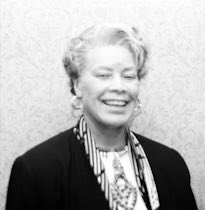
Allie B. Latimer
An attorney, civil rights activist and humanitarian, Allie B. Latimer was instrumental in organizing Federally Employed Women (FEW) in 1968, and served as the organization’s founding president until 1969. In 1977, as a federal attorney, Latimer was the first African American and first woman to serve as General Counsel of a major federal agency as well as the first African American and first woman to attain the GS-18 salary level at the General Services Administration. She was also recognized as part of the ‘second wave of feminist pioneers’ by the Veteran Feminists of America (VFA).
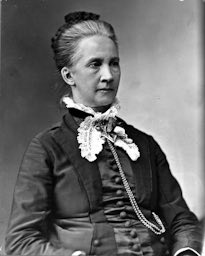
Belva Lockwood
First woman to practice law and argue a case before the U.S. Supreme Court (1879). Lockwood became a lawyer when she was 40 and used her knowledge to help secure women’s suffrage, property law reforms, pay equity and world peace. She helped open the legal profession to women.
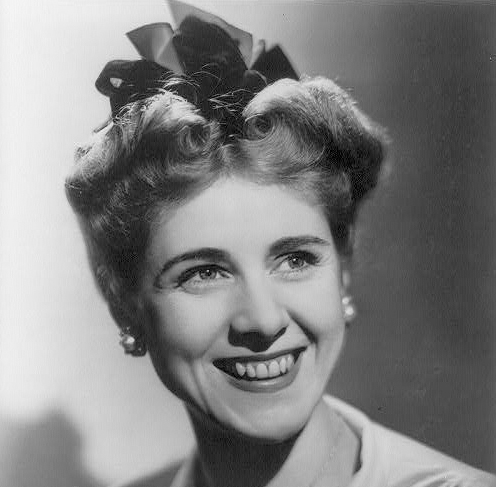
Clare Boothe Luce
She was instrumental in the creation of the Atomic Energy Commission and later established an endowment for what has become one of the single most significant sources of private support for women in science, mathematics, and engineering.
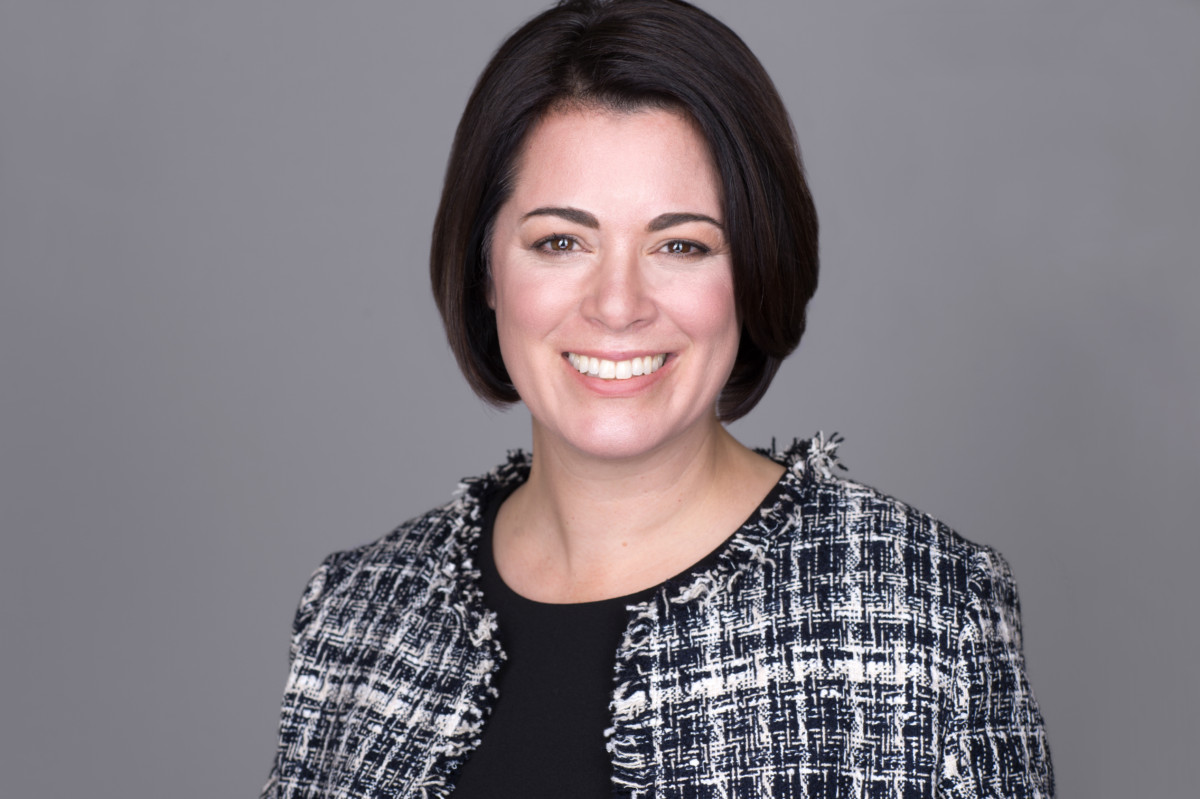
Nicole Malachowski
Colonel Nicole Malachowski (USAF, Ret.) has over 21 years of experience as an officer, leader, and fighter pilot in the United States Air Force. Upon her commission into the military, she was competitively selected to fly combat aircraft and embarked on an adventure among the first group of women to fly modern fighters. She has commanded a fighter squadron, piloted within the USAF air demonstration squadron, (better known as the “Thunderbirds”) and served as a White House Fellow and as an advisor to the First Lady of the United States during the Obama Administration. Colonel Malachowski is also committed to work focused on tick-borne diseases.
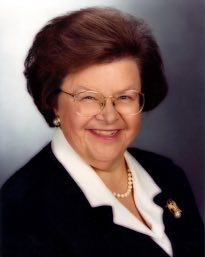
Barbara A. Mikulski
The first female Democratic United States Senator elected in her own right, Barbara Mikulski has been a political trailblazer for more than thirty years. During her tenure as a Senator, Mikulski has developed and supported legislation promoting equal healthcare for American women, Medicare reform, better care for veterans, greater student access to quality education, increased funding for scientific research, and more. Senator Mikulski currently serves as the Dean of the Women in the Senate, and is a senior member of the Health, Education, Labor and Pensions Committee; a senior member of the Appropriations Committee; and a member of the Senate Select Committee on Intelligence. In 2011, Senator Mikulski officially became the longest serving female Senator in United States history.
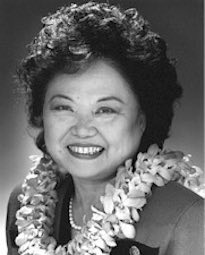
Patsy Takemoto Mink
As the first Asian-American Congresswoman in the history of the United States, attorney Patsy Takemoto Mink opened doors for women and minorities. Her persistence in securing the passage of Title IX in 1972 assured equal treatment for women in athletics in American educational institutions.

Allie B. Latimer
An attorney, civil rights activist and humanitarian, Allie B. Latimer was instrumental in organizing Federally Employed Women (FEW) in 1968, and served as the organization’s founding president until 1969. In 1977, as a federal attorney, Latimer was the first African American and first woman to serve as General Counsel of a major federal agency as well as the first African American and first woman to attain the GS-18 salary level at the General Services Administration. She was also recognized as part of the ‘second wave of feminist pioneers’ by the Veteran Feminists of America (VFA).

Belva Lockwood
First woman to practice law and argue a case before the U.S. Supreme Court (1879). Lockwood became a lawyer when she was 40 and used her knowledge to help secure women’s suffrage, property law reforms, pay equity and world peace. She helped open the legal profession to women.

Clare Boothe Luce
She was instrumental in the creation of the Atomic Energy Commission and later established an endowment for what has become one of the single most significant sources of private support for women in science, mathematics, and engineering.

Nicole Malachowski
Colonel Nicole Malachowski (USAF, Ret.) has over 21 years of experience as an officer, leader, and fighter pilot in the United States Air Force. Upon her commission into the military, she was competitively selected to fly combat aircraft and embarked on an adventure among the first group of women to fly modern fighters. She has commanded a fighter squadron, piloted within the USAF air demonstration squadron, (better known as the “Thunderbirds”) and served as a White House Fellow and as an advisor to the First Lady of the United States during the Obama Administration. Colonel Malachowski is also committed to work focused on tick-borne diseases.

Barbara A. Mikulski
The first female Democratic United States Senator elected in her own right, Barbara Mikulski has been a political trailblazer for more than thirty years. During her tenure as a Senator, Mikulski has developed and supported legislation promoting equal healthcare for American women, Medicare reform, better care for veterans, greater student access to quality education, increased funding for scientific research, and more. Senator Mikulski currently serves as the Dean of the Women in the Senate, and is a senior member of the Health, Education, Labor and Pensions Committee; a senior member of the Appropriations Committee; and a member of the Senate Select Committee on Intelligence. In 2011, Senator Mikulski officially became the longest serving female Senator in United States history.

Patsy Takemoto Mink
As the first Asian-American Congresswoman in the history of the United States, attorney Patsy Takemoto Mink opened doors for women and minorities. Her persistence in securing the passage of Title IX in 1972 assured equal treatment for women in athletics in American educational institutions.
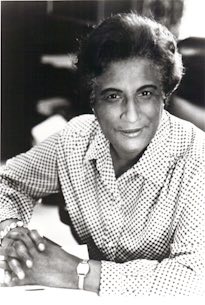
Constance Baker Motley
Attorney and jurist who, after performing landmark work with the NAACP with Thurgood Marshall and others, became the first African American woman elected to the New York State Senate. Motley was the first woman and African American to become Manhattan Borough President; she was the first African American women named to the federal bench.
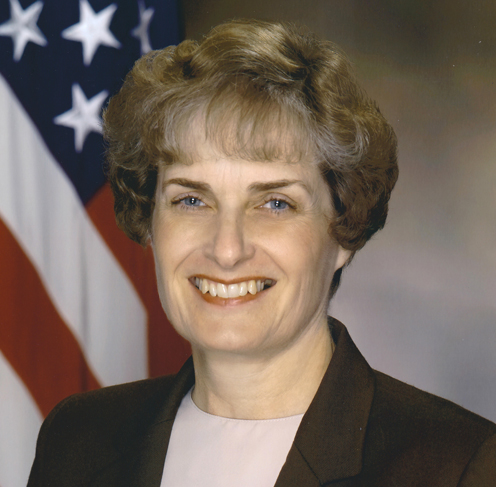
Carol A. Mutter
A Lieutenant General who entered the Marines when only 1% of Marines were women and no women were in the deployed services. Among her numerous activities, she has served as Chair of the Department of Defense Advisory Committee on Women in the Services and is a Past President of the Women Marines Association where she remains active at the national level.
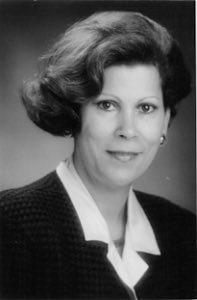
Antonia Novello
First woman and first Hispanic to be named Surgeon General of the United States. A pediatrician, Novello has used her position to alleviate suffering worldwide, especially for women and children.
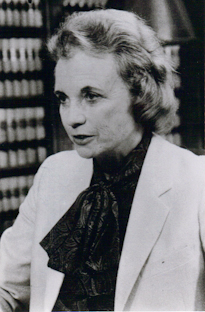
Sandra Day O'Connor
First woman appointed to the U.S. Supreme Court. Following successes as Assistant Attorney General and State Senator in Arizona, O’Connor was elected to Superior Court and then the Court of Appeals. She was named to the Supreme Court by President Ronald Regan.

Nancy Pelosi
For twenty-five years, Nancy Pelosi has broken ground for women in politics. As the representative from California’s 12th district, Pelosi has focused her political career on strengthening America’s middle class and creating jobs, reforming the political system to create clean campaigns and fair elections, enacting comprehensive immigration reform, and ensuring safety in America’s communities, neighborhoods and schools. In 2002, Pelosi became the first woman to lead a major political party in the United States as the Democratic Leader of the U.S. House of Representatives, and from 2007-2011, she served as the first female Speaker of the U.S. House of Representatives. Pelosi has spearheaded the passage of historic legislation, including the Affordable Care Act, the Student Aid and Fiscal Responsibility Act, the Lilly Ledbetter Fair Pay Act, and more.
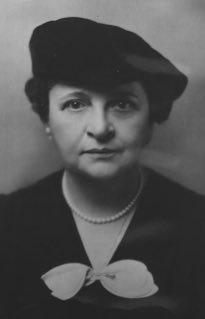
Frances Perkins
Public official and first woman to hold a Presidential Cabinet office and first woman Secretary of Labor. Appointed by President Roosevelt in 1932, she served for all of his terms, 1933-1945.

Constance Baker Motley
Attorney and jurist who, after performing landmark work with the NAACP with Thurgood Marshall and others, became the first African American woman elected to the New York State Senate. Motley was the first woman and African American to become Manhattan Borough President; she was the first African American women named to the federal bench.

Carol A. Mutter
A Lieutenant General who entered the Marines when only 1% of Marines were women and no women were in the deployed services. Among her numerous activities, she has served as Chair of the Department of Defense Advisory Committee on Women in the Services and is a Past President of the Women Marines Association where she remains active at the national level.

Antonia Novello
First woman and first Hispanic to be named Surgeon General of the United States. A pediatrician, Novello has used her position to alleviate suffering worldwide, especially for women and children.

Sandra Day O'Connor
First woman appointed to the U.S. Supreme Court. Following successes as Assistant Attorney General and State Senator in Arizona, O’Connor was elected to Superior Court and then the Court of Appeals. She was named to the Supreme Court by President Ronald Regan.

Nancy Pelosi
For twenty-five years, Nancy Pelosi has broken ground for women in politics. As the representative from California’s 12th district, Pelosi has focused her political career on strengthening America’s middle class and creating jobs, reforming the political system to create clean campaigns and fair elections, enacting comprehensive immigration reform, and ensuring safety in America’s communities, neighborhoods and schools. In 2002, Pelosi became the first woman to lead a major political party in the United States as the Democratic Leader of the U.S. House of Representatives, and from 2007-2011, she served as the first female Speaker of the U.S. House of Representatives. Pelosi has spearheaded the passage of historic legislation, including the Affordable Care Act, the Student Aid and Fiscal Responsibility Act, the Lilly Ledbetter Fair Pay Act, and more.

Frances Perkins
Public official and first woman to hold a Presidential Cabinet office and first woman Secretary of Labor. Appointed by President Roosevelt in 1932, she served for all of his terms, 1933-1945.

Jeannette Rankin
First woman elected to the U.S. Congress. Rankin served two separate terms representing Montana, and was the only U.S. Representative to vote against America’s entry into both World Wars. A lifelong pacifist, she worked for peace until her death.

Janet Reno
As Florida State Attorney, she helped establish the Miami Drug Court and reform the juvenile justice system. Appointed by President Clinton to be the first woman Attorney General of the United States, she brought a personal and professional integrity to the office during times when issues were divided bitterly along partisan lines.
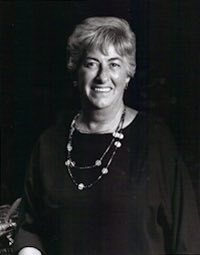
Rozanne L. Ridgway
Foreign policy advisor under six consecutive U.S. presidents from Richard Nixon to William Clinton. Beginning in 1975, she served as Deputy Assistant Secretary of State; her last appointment was Assistant Secretary of State for European and Canadian Affairs. A former Chair of the Atlantic Council of the U.S., a foreign policy think tank, her work has spanned almost four decades.
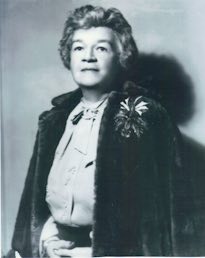
Edith Nourse Rogers
Massachusetts Congresswoman who introduced the “G.I. Bill of Rights” Act and Women’s Army Auxiliary Corp (WAC) legislation. The “Bill of Rights” guaranteed veterans’ health and education benefits (also small business loans). In addition, it supported research and development of prosthetic appliances. Rogers pushed for equality for women in and out of military until her death.
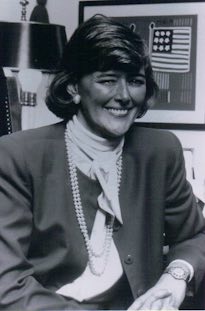
Patricia Schroeder
Served as the senior woman in Congress, first elected in 1972 from Colorado. Schroeder worked to establish a national pro-family policy, promoting issues such as parental leave, child care and family planning.
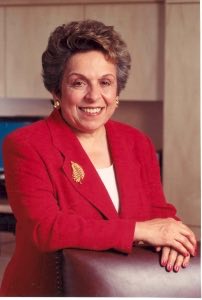
Donna E. Shalala
A groundbreaking educator and politician, Dr. Donna Shalala has more than thirty years of experience as an accomplished scholar, teacher and administrator. Dr. Shalala is recognized as the longest serving United States Secretary of Health and Human Services (1993-2001) and is the current President of the University of Miami. From 1980-1987, Dr. Shalala served as the president of Hunter College, and from 1987-1993, she was the chancellor of the University of Wisconsin-Madison. Dr. Shalala is the recipient of more than three dozen honorary degrees and was awarded the Presidential Medal of Freedom in 2008.

Jeannette Rankin
First woman elected to the U.S. Congress. Rankin served two separate terms representing Montana, and was the only U.S. Representative to vote against America’s entry into both World Wars. A lifelong pacifist, she worked for peace until her death.

Janet Reno
As Florida State Attorney, she helped establish the Miami Drug Court and reform the juvenile justice system. Appointed by President Clinton to be the first woman Attorney General of the United States, she brought a personal and professional integrity to the office during times when issues were divided bitterly along partisan lines.

Rozanne L. Ridgway
Foreign policy advisor under six consecutive U.S. presidents from Richard Nixon to William Clinton. Beginning in 1975, she served as Deputy Assistant Secretary of State; her last appointment was Assistant Secretary of State for European and Canadian Affairs. A former Chair of the Atlantic Council of the U.S., a foreign policy think tank, her work has spanned almost four decades.

Edith Nourse Rogers
Massachusetts Congresswoman who introduced the “G.I. Bill of Rights” Act and Women’s Army Auxiliary Corp (WAC) legislation. The “Bill of Rights” guaranteed veterans’ health and education benefits (also small business loans). In addition, it supported research and development of prosthetic appliances. Rogers pushed for equality for women in and out of military until her death.

Patricia Schroeder
Served as the senior woman in Congress, first elected in 1972 from Colorado. Schroeder worked to establish a national pro-family policy, promoting issues such as parental leave, child care and family planning.

Donna E. Shalala
A groundbreaking educator and politician, Dr. Donna Shalala has more than thirty years of experience as an accomplished scholar, teacher and administrator. Dr. Shalala is recognized as the longest serving United States Secretary of Health and Human Services (1993-2001) and is the current President of the University of Miami. From 1980-1987, Dr. Shalala served as the president of Hunter College, and from 1987-1993, she was the chancellor of the University of Wisconsin-Madison. Dr. Shalala is the recipient of more than three dozen honorary degrees and was awarded the Presidential Medal of Freedom in 2008.
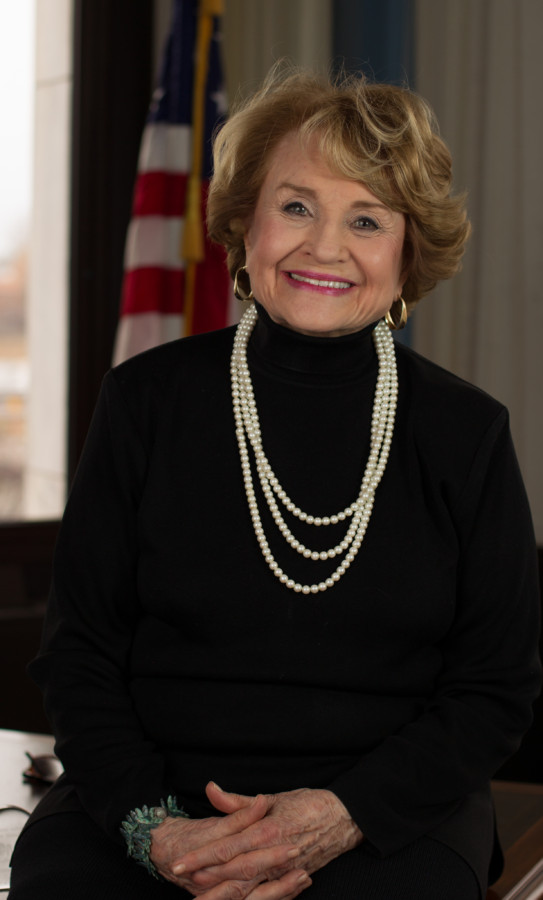
Louise Slaughter
A prominent advocate for women and POC, Louise Slaughter was a member of Congress for over 30 years. One of the longest-serving women in the House of Representatives, Slaughter was the first chairwoman of the House Rules Committee and the co-chair and founding member of the Congressional Pro-Choice Caucus, which works to promote reproductive health and protect a woman’s right to choose. Slaughter also established the Office of Research on Women’s Health and secured the first $500 million in federal funding for breast cancer research at the NIH, and she co-authored the landmark Violence Against Women Act, which has reduced cases of domestic violence by 67% since 1994. Representing upstate New York in Congress for decades, Slaughter was a scientist-turned-politician, a local and national leader whose work for women and for all Americans continues to shape our lives.
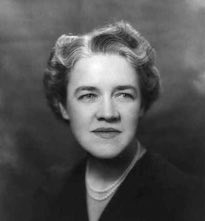
Margaret Chase Smith
Beginning her political career by assuming her deceased husband’s seat in the U.S. House of Representatives, she ran for and became a U.S. Senator from Maine. Margaret Chase Smith served four terms and was an advocate for a strong national defense.
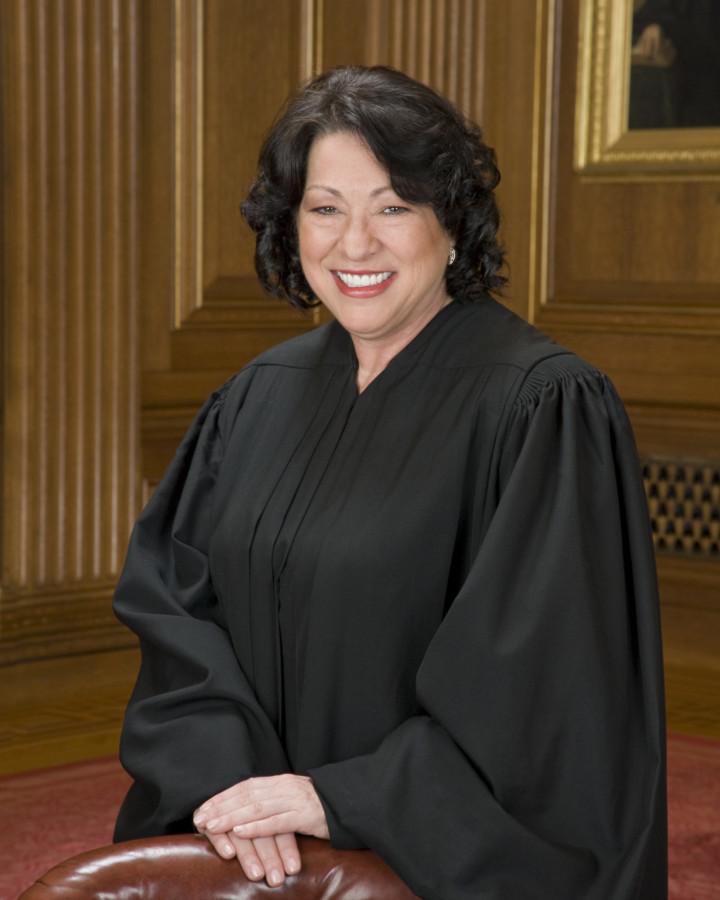
Sonia Sotomayor
Sonia Sotomayor is an Associate Justice of the Supreme Court of the United States, appointed by President Barack Obama in 2009 after leadership as an assistant district attorney, in private practice and across a distinguished judicial career. She is the third woman to be appointed to the Supreme Court and the first Hispanic and Latina Justice in the Court’s 230 years. A graduate of Princeton and Yale Law School, Sotomayor’s experiences as one of few Latinas at these institutions led her to advocate for inclusion on campuses, foreshadowing her focus on public service across her career. During her tenure on the Supreme Court, Sotomayor has been reputed for her work concerning the rights of defendants, calls for reform of the criminal justice system, and attention to issues of race, gender and ethnic identity. Justice Sotomayor is also an author, including of “My Beloved World/Mi Mundo Adorado,” “A Judge Grows in the Bronx/La juez que creció en el Bronx” and “Turning pages/Pasando Páginas.” A recipient of the Katherine Hepburn Award from Bryn Mawr College honoring women who change the world, Sotomayor has also received multiple honorary degrees, including from her alma mater Princeton University.
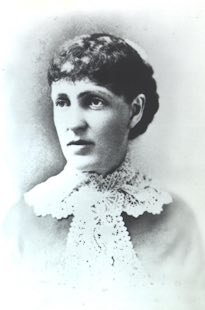
Kate Stoneman
Kate Stoneman was the first woman admitted to practice law in New York State. In 1885, she became the first female to pass the New York State Bar Exam, but her 1886 application to join the bar was rejected because of her gender. Stoneman immediately launched a lobbying campaign to amend the Code of Civil Procedure to permit the admission of qualified applicants without regard to sex or race, and was successfully admitted to the bar later the same month. In 1898, she became the first female graduate of Albany Law School, and was the first woman to receive a bachelor’s degree from any department of Union University.
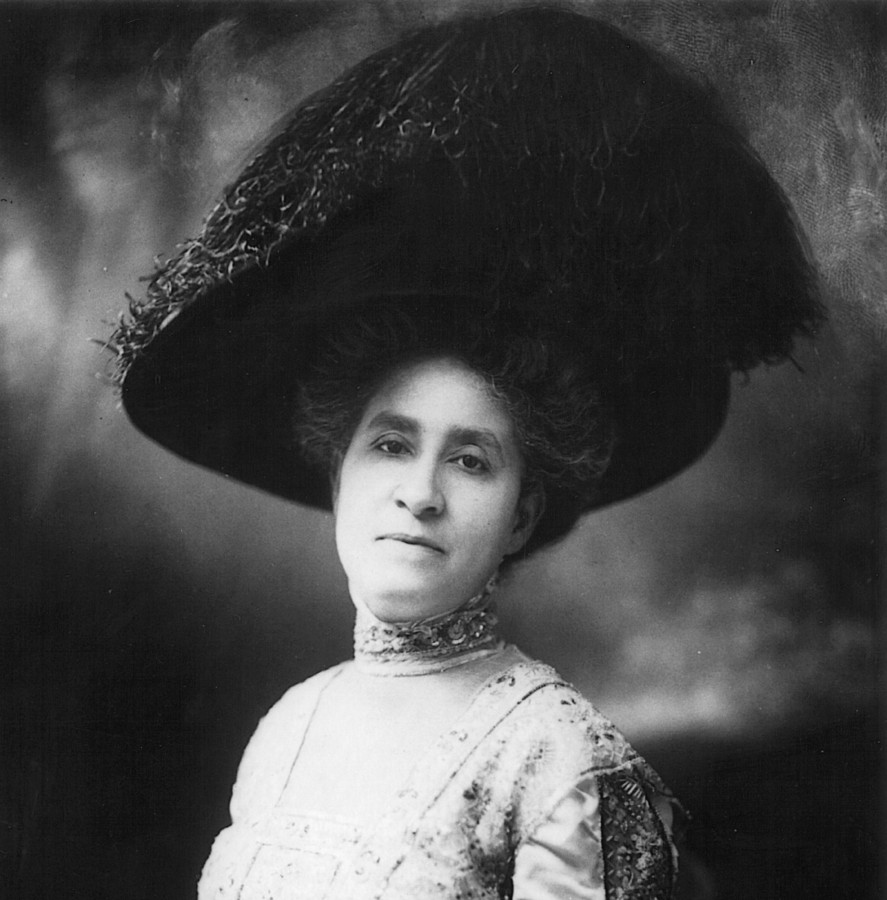
Mary Church Terrell
One of the most prominent activists of her era with a career that spanned well into the civil rights movements of the1950’s. Terrell believed in racial uplift and equal opportunity, actively campaigning for women’s and Black women’s suffrage.
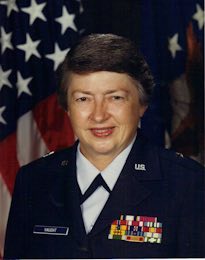
Wilma L. Vaught
One of the most decorated military women in U.S. history, Brigadier General Vaught, USAF, Retired, broke through many gender barriers to achieve a series of “firsts” that paved the way for military women serving today. She may be best known and most revered for her 12-year quest to permanently honor women in the military, raising over $45 million to build a major national memorial. The stunning 33,000 sq. ft. Women in Military Service for America Memorial facility and education center stands today at the gateway to Arlington National Cemetery.

Louise Slaughter
A prominent advocate for women and POC, Louise Slaughter was a member of Congress for over 30 years. One of the longest-serving women in the House of Representatives, Slaughter was the first chairwoman of the House Rules Committee and the co-chair and founding member of the Congressional Pro-Choice Caucus, which works to promote reproductive health and protect a woman’s right to choose. Slaughter also established the Office of Research on Women’s Health and secured the first $500 million in federal funding for breast cancer research at the NIH, and she co-authored the landmark Violence Against Women Act, which has reduced cases of domestic violence by 67% since 1994. Representing upstate New York in Congress for decades, Slaughter was a scientist-turned-politician, a local and national leader whose work for women and for all Americans continues to shape our lives.

Margaret Chase Smith
Beginning her political career by assuming her deceased husband’s seat in the U.S. House of Representatives, she ran for and became a U.S. Senator from Maine. Margaret Chase Smith served four terms and was an advocate for a strong national defense.

Sonia Sotomayor
Sonia Sotomayor is an Associate Justice of the Supreme Court of the United States, appointed by President Barack Obama in 2009 after leadership as an assistant district attorney, in private practice and across a distinguished judicial career. She is the third woman to be appointed to the Supreme Court and the first Hispanic and Latina Justice in the Court’s 230 years. A graduate of Princeton and Yale Law School, Sotomayor’s experiences as one of few Latinas at these institutions led her to advocate for inclusion on campuses, foreshadowing her focus on public service across her career. During her tenure on the Supreme Court, Sotomayor has been reputed for her work concerning the rights of defendants, calls for reform of the criminal justice system, and attention to issues of race, gender and ethnic identity. Justice Sotomayor is also an author, including of “My Beloved World/Mi Mundo Adorado,” “A Judge Grows in the Bronx/La juez que creció en el Bronx” and “Turning pages/Pasando Páginas.” A recipient of the Katherine Hepburn Award from Bryn Mawr College honoring women who change the world, Sotomayor has also received multiple honorary degrees, including from her alma mater Princeton University.

Kate Stoneman
Kate Stoneman was the first woman admitted to practice law in New York State. In 1885, she became the first female to pass the New York State Bar Exam, but her 1886 application to join the bar was rejected because of her gender. Stoneman immediately launched a lobbying campaign to amend the Code of Civil Procedure to permit the admission of qualified applicants without regard to sex or race, and was successfully admitted to the bar later the same month. In 1898, she became the first female graduate of Albany Law School, and was the first woman to receive a bachelor’s degree from any department of Union University.

Mary Church Terrell
One of the most prominent activists of her era with a career that spanned well into the civil rights movements of the1950’s. Terrell believed in racial uplift and equal opportunity, actively campaigning for women’s and Black women’s suffrage.

Wilma L. Vaught
One of the most decorated military women in U.S. history, Brigadier General Vaught, USAF, Retired, broke through many gender barriers to achieve a series of “firsts” that paved the way for military women serving today. She may be best known and most revered for her 12-year quest to permanently honor women in the military, raising over $45 million to build a major national memorial. The stunning 33,000 sq. ft. Women in Military Service for America Memorial facility and education center stands today at the gateway to Arlington National Cemetery.
